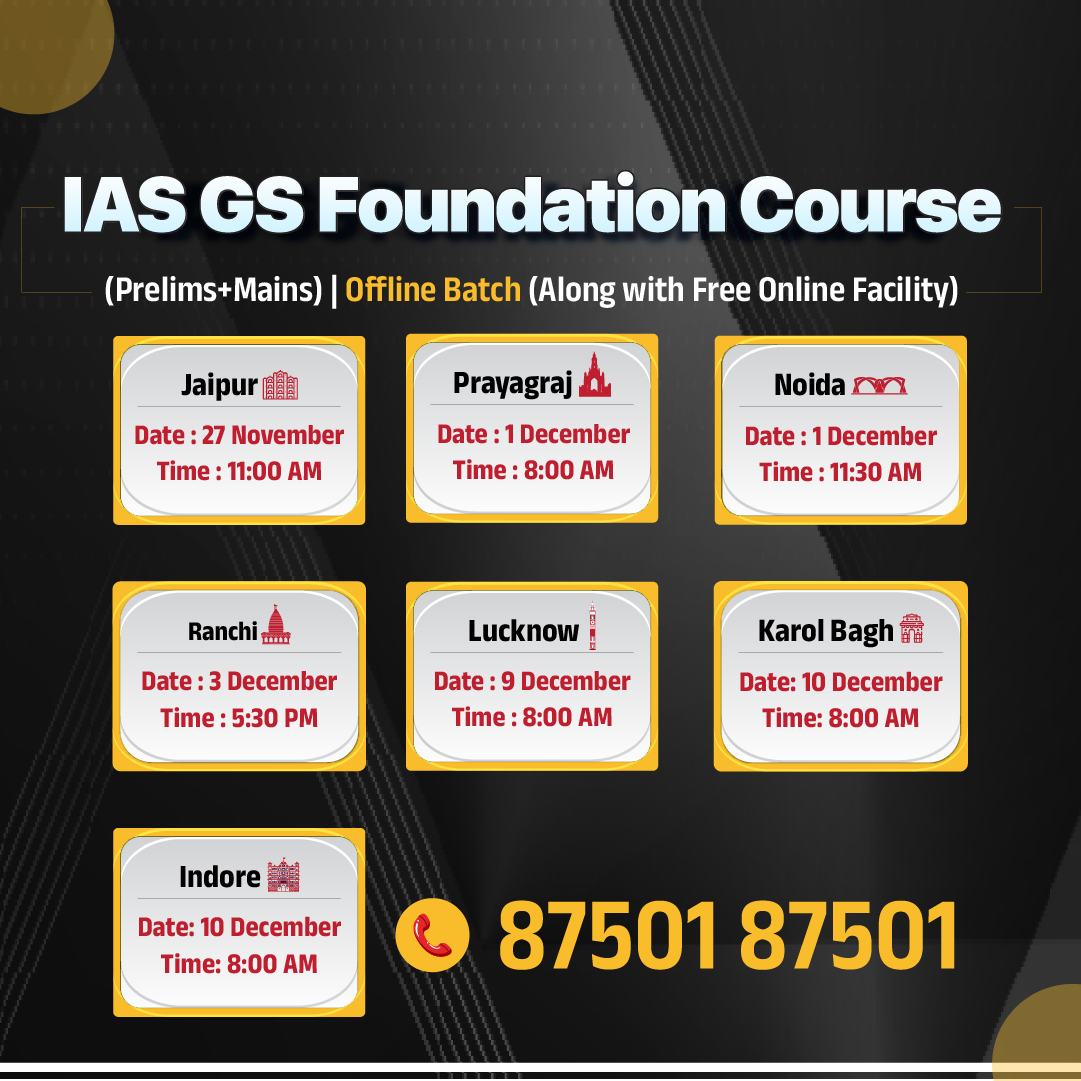Jammu & Kashmir Switch to Hindi
Exit Polls Banned
Why in News?
Recently, the Election Commission of India (ECI) issued a notification banning the release of exit polls for the upcoming Assembly elections in Jammu and Kashmir.
Key Points
- Exit polls are banned from being conducted or published from 7:00 AM on September 18, 2024, to 6:30 PM on October 5, 2024.
- An exit poll is conducted immediately after people have voted, and assesses the support for political parties and their candidates.
- The move is a standard procedure to ensure fairness and prevent exit polls from influencing voter behavior during the election process.
- The ban is based on Section 126A of the Representation of the People Act, 1951, which prohibits the conducting, publishing, or publicizing of exit polls.
- Exit poll results can be published 30 minutes after the last vote is cast.
- Under Section 126(1)(b) of the RP Act, 1951, displaying any election-related material, including opinion polls, is prohibited during the 48 hours before the end of polling.
- An opinion poll is a pre-election survey to gather voters’ views on a range of election-related issues.
Representation of the People Act (RPA), 1950
- Key Provisions:
- Lays down procedures for delimitation of constituencies.
- Provides for the allocation of seats in the House of the People and in the Legislative Assemblies and Legislative Councils of States.
- Lays procedure for the preparation of electoral rolls and the manner of filling seats.
- Lays down the qualification of voters.
Representation of the People Act (RPA),1951
- Key Provisions:
- It regulates the actual conduct of elections and by-elections.
- It provides administrative machinery for conducting elections.
- It deals with the registration of political parties.
- It specifies the qualifications and disqualifications for membership of the Houses.
- It provides provisions to curb corrupt practices and other offences.
- It lays down the procedure for settling doubts and disputes arising out of elections.
Jammu & Kashmir Switch to Hindi
Rise in Militancy in Jammu
Why in News?
The Jammu region of Jammu and Kashmir (J&K) has witnessed a notable increase in militant attacks since mid-2021, culminating in recent incidents including the ambush on Army vehicles in Kathua district and targeted strikes in other areas
Key Points
- Reasons for Rise in Militancy in Jammu:
- Strategic Shift: The pursuance of zero terror policy in Kashmir have provided militants to an opportunity to operate in Jammu.
- In 2020, perceived low militancy in Jammu led to troop movements to Ladakh (along LAC after the Galwan Accident), potentially prompting militants to relocate.
- Strategic Importance of Jammu: Jammu serves as a crucial gateway to the rest of India, making it an attractive target for militants aiming to disrupt normalcy and create fear.
- Geostrategic Considerations: The proximity to the Line of Control (LoC) provides militants easier access from Pakistan-occupied Kashmir, facilitating infiltration and logistics support.
- Economic Disparities: Lack of economic opportunity and development in remote and border areas of Jammu create fertile ground for recruitment of local youths by militant groups.
- Lack of Human Intelligence: The locals who provided information decades ago are now in their 60s or 70s, and the security forces have not nurtured relations with younger generations, highlighting a gap in human intelligence gathering.
Note:
- Terrorism: Terrorism under the Unlawful Activities (Prevention) Amendment Act, 2012, involves using violence or threats to create fear for political, ideological, or extremist aims, impacting national or global security.
- Militancy: Militancy refers to a readiness to use violence or combativeness, encompassing various groups or individuals including armed religious factions, often used interchangeably with terrorism but suggesting a potentially less extreme level of violent expression compared to terrorism.


.png)








.png)


.jpg)



 PCS Parikshan
PCS Parikshan

